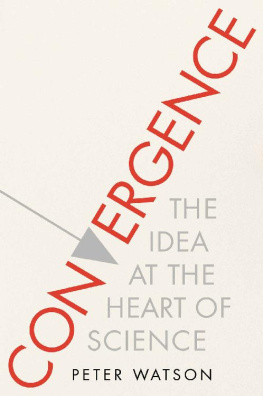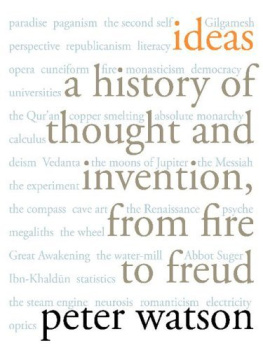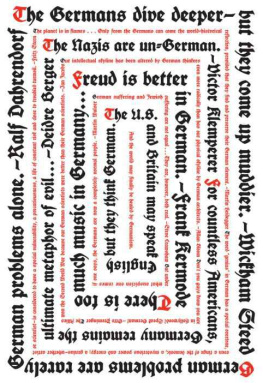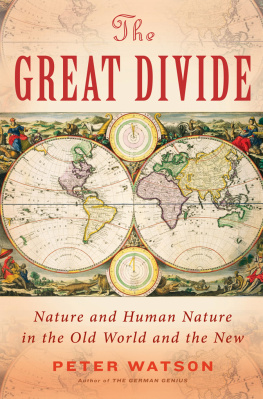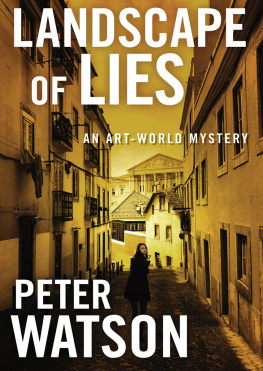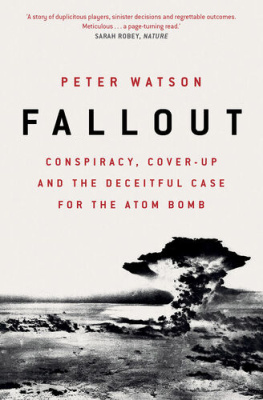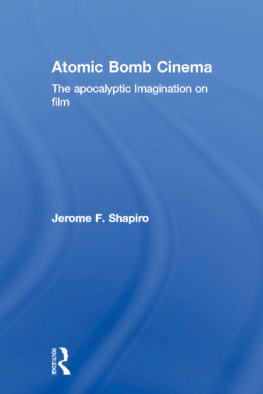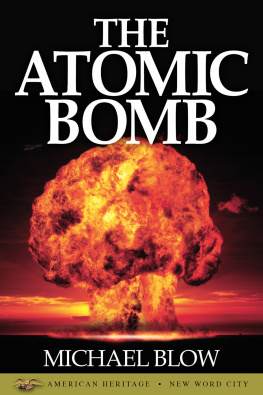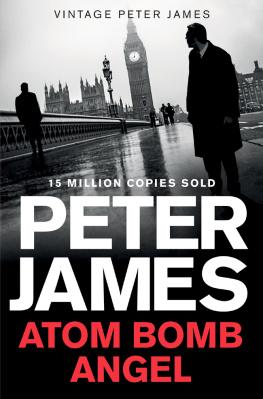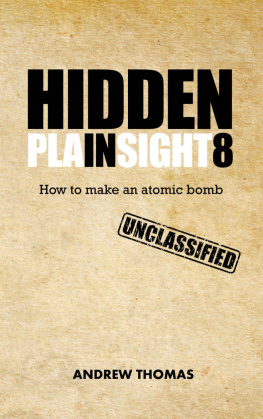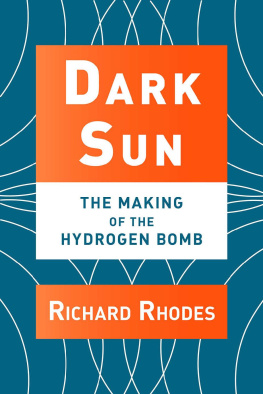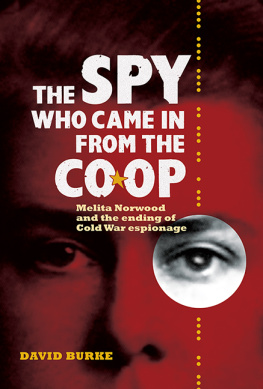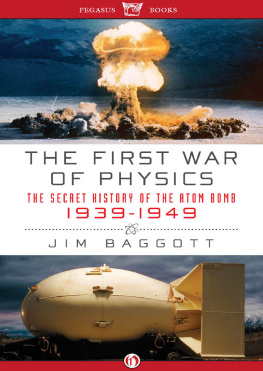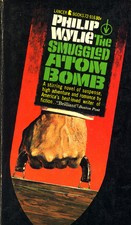I realized then [1941] that a bomb was not only possible it was inevitable.
Sir James Chadwick, the most senior British scientist in the Manhattan Project, speaking to an interviewer shortly before his death in 1974
The Allies won [the Second World War] because our German scientists were better than their German scientists.
Sir Ian Jacob, military secretary to Winston Churchill
Atomic weapons can hardly be used without spelling the end of the world.
Joseph Stalin
When you see something that is technically sweet, you go ahead and do it and you argue about it only after you have had your technical success. That is the way it was with the atomic bomb.
J. Robert Oppenheimer, scientific director of Los Alamos
Dont bother me with your conscientious scruples. After all, the things superb physics.
Enrico Fermi, creator of the first sustainable nuclear chain reaction
The first atomic bomb was an unnecessary experiment... [the scientists] had this toy and they wanted to try it out, so they dropped it.
Admiral William Bull Halsey, commander of the Third Fleet
Chadwicks discovery of the neutron marked the unintentional first step towards mans loss of innocence in the field of nuclear energy.
Andrew Brown, James Chadwicks biographer
When the righteous sin, they add the force of their virtue to all the evil that they do.
Lewis Mumford, paraphrasing Ezekiel 18:24
Fallout
1. Radioactive particles that are carried into the atmosphere after a nuclear explosion and gradually fall back as dust or in precipitation.
2. The adverse results of a situation or action.
Preface
Cover-Up: When the Righteous Sin
Albert Einsteins famous realisation that E=mc2 , that matter and energy are essentially different aspects of the same phenomenon, may be the most rapidly consequential idea in human history. He first published his theory of nuclear energy in May 1905, refining it with the help of others until 1917 in the middle of the First World War. Twenty-eight years later a single generation in human terms on 6 August 1945, Hiroshima and Nagasaki were each destroyed by an atomic bomb, bringing an end to the Second World War.
History shows that while ideas can be consequential the Renaissance, the Reformation, the Scientific and Romantic revolutions were real enough it is not always so easy to identify the exact role they played. What were the intellectual origins of the French Revolution? Why did a Marxist revolution occur in Russia when Marx himself expected it to happen in England? Why did modernism emerge in France first if, indeed, it did?
But with atomic energy nuclear energy the chronology is known with an exactitude that is rare in the history of ideas. Beginning in 1898 with the identification of the electron, soon followed by the discovery of the structure of the atom in 1907, and then the realisation of the existence and importance of the neutron in 1932, giving rise to the possibility of a chain reaction, the pieces of this jigsaw were put together in a remarkably swift period, the heroic age of physics as Ernest Rutherford, the director of the Cavendish Laboratory in Cambridge, called it.
But the 1920s and 1930s were notable for something else, no less consequential and no less dramatic: the rise of Nazism in Germany and Fascism in Italy.
From the discovery of the neutron in the year before Hitler came to power in Berlin, some scientists were aware of the theoretical possibility that the massive energy wrapped up in the nucleus of the atom could be unlocked, but hoped against hope that it would never prove practical. And then, over Christmas/New Year 1938/9, on the very eve of war, four scientists from Germany confirmed that they had split fissioned the nucleus of uranium, the heaviest element in the periodic table and the most unstable. The possibility of nuclear weapons came a frightening step nearer.
One German scientist, Werner Heisenberg, arguably the most brilliant of all, who had won the Nobel Prize in 1932, aged thirty-one, was much later to say that had a handful of physicists got together in 1939 and refused to do any more work on nuclear weapons, there was nothing the politicians could have done, and the whole nuclear arms
Instead, that year a very small number of highly trained individuals suddenly found themselves in possession of knowledge and skills that could, at least in theory, decide the outcome of war, should it come to pass, which seemed increasingly likely. What could be more dramatic than that an idea so powerful that it could determine the outcome of a world war? Einstein himself was distraught.

Six years later Einsteins remarkable insight was fully realised. On Monday 16 July 1945 at 5.29 a.m., the first test of an atomic bomb was successfully carried out at the so-called Trinity site in the Alamogordo desert in New Mexico. Though he was told the noise had been heard in three states, Leslie Groves, the general in charge of the project, insisted the test be kept secret. Can you give us an easy job, general, an aide remarked, like hiding the Mississippi River? The very next day, President Harry Truman sat down for his first and only face-to-face meeting with the Soviet premier Joseph Stalin in a
Three weeks later, on 6 August, also a Monday, Einsteins idea was again deployed when Hiroshima was bombed. Two days after that, on 8 August, the Soviet Union declared war on Japan. The very next morning, the Red Armys tanks rolled across the Manchurian border.
These events were hardly coincidences. In recent years, the view has become established among historians at least if not yet the general public that the bombs dropped on Hiroshima and Nagasaki were not needed to end the Second World War but had another purpose.
In some ways it is surprising that this view is not more widespread. One early distinguished sceptic about the bombs use was General Dwight D. Eisenhower, supreme commander of the Allied Expeditionary Force, who directed Allied operations in Europe against Hitler, and was later president of the United States. At the height of the Cold War, and soon after his famous farewell address as president, in which he drew attention to the risks posed by the military-industrial complex, he recalled the moment when the secretary of war, Henry Stimson, told him that the atomic bomb was to be used against Japanese cities:
Admiral William Bull Halseys Third Fleet was meeting almost no resistance as it bombarded Japanese coastal installations, and Admiral Wagner, in charge of air search-and-patrol, found that in all the millions of square miles on the East Asian seas and coasts there was literally not a single target worth the powder to blow it up. Halsey later, echoing Eisenhower, said: The first atomic bomb was an unnecessary experiment... It was a mistake to ever drop it... [the scientists] had this toy and they wanted to try it out, so they dropped it... It killed a lot of Japs, but the Japs had put out a lot of peace
Perhaps even more telling, less than a year after the bombings an extensive official study by the US Strategic Bombing Survey published its conclusion that Japan would likely have surrendered in 1945 without atomic bombing, without a Soviet declaration of war,
Leo Szilard, a Hungarian Jewish migr who had escaped the Third Reich by the skin of his teeth and had later been the first to conceive the idea of the nuclear chain reaction, had met with James F. Byrnes, President Trumans personal representative on atomic matters and subsequently secretary of state, at his home in Spartanburg, South Carolina in May 1945. In a memoir, Szilard wrote:
Next page

